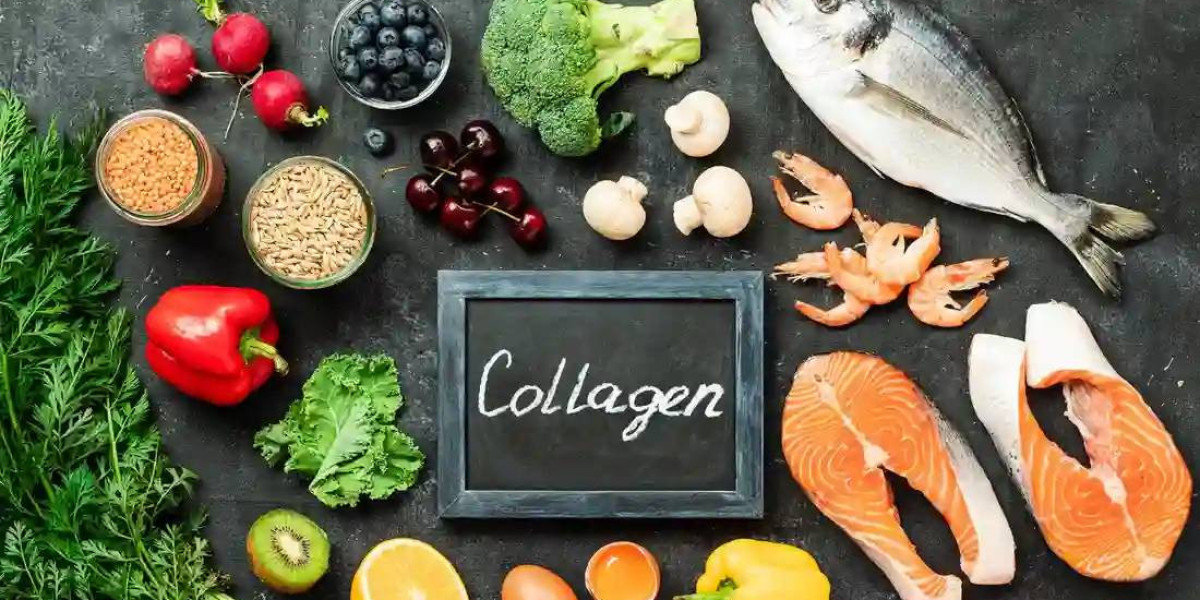1. Introduction
In today's health-conscious world, achieving glowing skin is a top priority for many individuals. While collagen is often associated with animal products, vegetarians can also enjoy the benefits of collagen-rich foods. This comprehensive guide explores the best plant-based sources of collagen to support skin health and overall well-being.
2. What is Collagen?
Collagen is a structural protein found in the skin, bones, muscles, and connective tissues. It provides strength and elasticity to the skin, keeping it firm and youthful-looking. While the body naturally produces collagen, its production decreases with age, making it essential to incorporate collagen-rich foods into your diet.
3. Importance of Collagen for Vegetarians
Vegetarians may face challenges in obtaining sufficient collagen from their diet due to the absence of traditional animal sources. However, collagen is crucial for maintaining skin health, regardless of dietary preferences. By including collagen-rich plant foods in their meals, vegetarians can support their skin's elasticity and hydration.
4. Legumes: Plant-Based Protein Powerhouses
Legumes such as beans, lentils, and chickpeas are excellent sources of plant-based protein. They also contain essential amino acids like proline and glycine, which are necessary for collagen synthesis. Incorporating legumes into your vegetarian diet ensures a steady supply of nutrients to support skin health.
5. Nuts and Seeds: Omega-3 Fatty Acids and Antioxidants
Nuts and seeds like almonds, walnuts, flaxseeds, and chia seeds are rich in omega-3 fatty acids and antioxidants. These nutrients help protect the skin from oxidative damage and promote collagen production. Snack on a handful of nuts or sprinkle seeds over salads for an extra boost of skin-loving nutrients.
6. Leafy Greens: Vitamin-Rich Superfoods
Leafy greens such as spinach, kale, and Swiss chard are packed with vitamins and minerals, including vitamin C and E. These antioxidants play a crucial role in collagen synthesis and help maintain skin health. Incorporating leafy greens into your meals can improve skin elasticity and reduce signs of aging.
7. Soy Products: Isoflavones for Collagen Production
Soy products like tofu, tempeh, and edamame contain isoflavones, plant compounds that mimic estrogen in the body. Isoflavones have been shown to support collagen production and improve skin elasticity. Adding soy-based dishes to your vegetarian diet can enhance your skin's overall appearance.
8. Citrus Fruits: Vitamin C Boosters
Citrus fruits such as oranges, lemons, and grapefruits are rich in vitamin C, a powerful antioxidant that promotes collagen production. Start your day with a glass of freshly squeezed orange juice or add lemon slices to your water for a refreshing collagen boost. Including citrus fruits in your diet can help maintain youthful-looking skin.
9. Tofu Recipes: Delicious and Nutritious Options
Tofu, a versatile plant-based protein, can be incorporated into various vegetarian dishes. Try tofu stir-fries, tofu scrambles, or tofu burgers for a delicious and collagen-rich meal option. Experiment with different tofu recipes to find your favorites and support your skin's health.
10. Quinoa Salad: A Protein-Packed Delight
Quinoa salad with chickpeas, leafy greens, and colorful vegetables is a nutritious and collagen-boosting meal option for vegetarians. Drizzle with a lemon-tahini dressing for added flavor and skin-nourishing benefits. Enjoy this protein-packed salad as a satisfying lunch or dinner option.
11. Collagen Supplements: An Option for Vegetarians
While collagen supplements are often derived from animal sources, there are plant-based alternatives available for vegetarians. Look for supplements made from seaweed or algae, which provide the necessary amino acids for collagen synthesis without relying on animal products.
12. Lifestyle Habits: Supporting Collagen Production Naturally
In addition to dietary factors, certain lifestyle habits can help support collagen production naturally. Stay hydrated, get regular exercise, and protect your skin from sun damage to maintain healthy collagen levels. Incorporating these habits into your daily routine can enhance the effects of collagen-rich foods for vegetarians on your skin.
13. FAQs (Frequently Asked Questions)
Q: Can vegetarians get enough collagen from their diet?
A: Yes, by incorporating collagen-rich plant foods like legumes, nuts, seeds, and leafy greens into their meals, vegetarians can support collagen production and maintain healthy skin.
Q: Are there any collagen supplements suitable for vegetarians?
A: Yes, vegetarians can opt for collagen supplements made from plant-based sources such as seaweed or algae to support their skin health without relying on animal products.
Q: How long does it take to see results from collagen-rich foods?
A: Results may vary depending on individual factors, but consistent consumption of collagen-rich foods can lead to noticeable improvements in skin health over time.
Q: Can collagen-rich foods benefit other aspects of health besides skin?
A: Yes, collagen-rich foods can also support joint, bone, and muscle health, making them beneficial for overall well-being.
Q: Are there any side effects of consuming collagen-rich foods?
A: Collagen-rich foods are generally safe for consumption and are unlikely to cause side effects when consumed as part of a balanced diet.
Q: What are some other ways to naturally promote collagen production?
A: In addition to dietary factors, lifestyle habits like getting enough sleep, managing stress, and avoiding smoking can also help support collagen production naturally.
14. Conclusion
In conclusion, collagen-rich foods are essential for supporting skin health and overall well-being, even for vegetarians. By incorporating legumes, nuts, seeds, leafy greens, soy products, and citrus fruits into their diet, vegetarians can enjoy the benefits of collagen without compromising their dietary preferences. With a balanced approach to nutrition and lifestyle habits, radiant skin is within reach for everyone.








